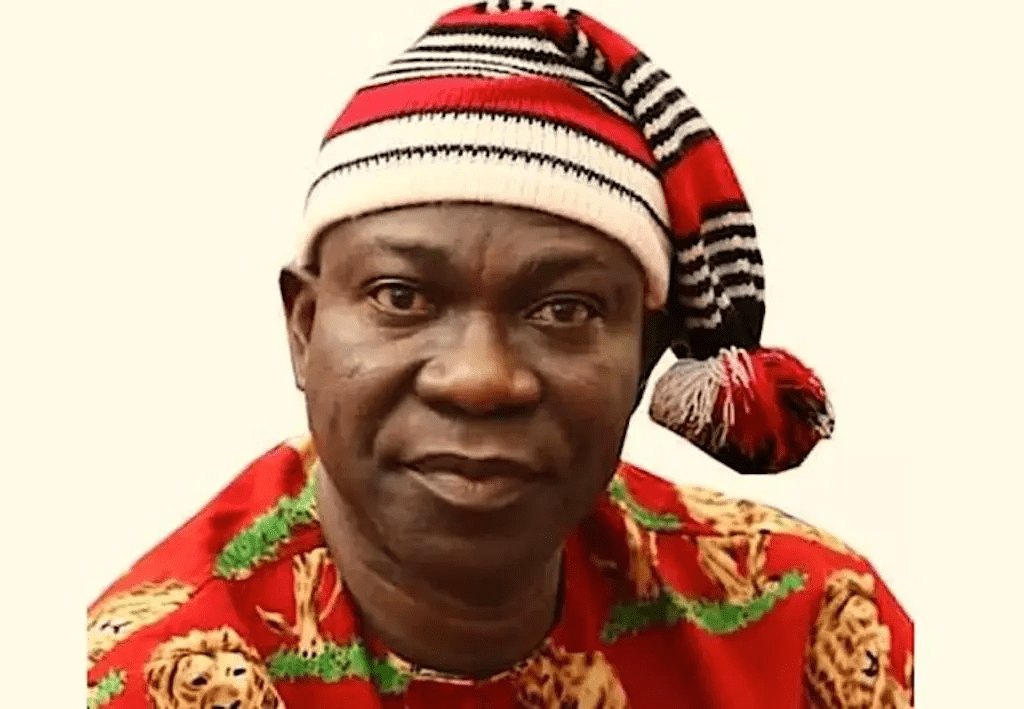The Federal High Court sitting in Abuja has vacated the interim order of forfeiture issued on properties linked to a former Deputy Senate President, Ike Ekweremadu and his wife, Beatrice.
Justice Inyang Ekwo set aside the November 4, 2022 order on the 40 landed properties on Friday.
In his ruling, the judge held that the application for forfeiture filed by the Economic and Financial Crimes Commission (EFCC) was not brought in good faith and ought to be struck out.
Justice Ekwo further held that the anti-graft agency concealed facts when it applied for the interim order of forfeiture.
In his November 4 ruling, the judge had directed the EFCC to publish a notice of the interim forfeiture order in a national daily within seven days.
Justice Ekwo directed that anybody who had an interest in the properties should approach the court within 14 days of the newspaper publication of the interim forfeiture order to show cause why the properties should not be permanently forfeited to the Federal Government.
Subsequently, the Anambra state government and Uni-Medical Healthcare Limited appeared before the court on December 5 as parties interested in some of the seized properties.
Ekweremadu’s son, Lloyd equally filed a motion on notice marked: FHC/ABJ/CS/1242/2022 through his lawyer, Adegboyega Awomolo SAN, praying the court for an order setting aside the interim forfeiture order.
He argued that in its motion ex-parte upon which the interim forfeiture order was granted by the court, the EFCC “deliberately and fraudulently omitted very critical facts/evidence, which negate the granting of the application”.
He claimed that the EFCC wrote a letter to the London court that made the court refuse to admit his father to bail.
Ekweremadu’s son further stated that the EFCC was fully aware that his father was in detention in London when the application for forfeiture of the properties was filed and would not be able to counter the forfeiture request.
Justice Ekwo stated that though the anti-graft agency knew the predicament of Ekweremadu and his wife in the United Kingdom (UK) and did not deny writing a letter to the Crown Prosecution Service in the UK to furnish them with information about the lawmaker, the EFCC still brought an application seeking an order for them to show cause on the assets to be forfeited.
“I do not think that the desired objective of the legislature in enacting the provision of Section 17 of the Advance Fee Fraud and Other Related Offences Act (AFFOROA), 2006 relied upon by the respondent (EFCC) in initiating the proceeding to obtain an ex-parte order of interim forfeiture order was for the provision to be used in any circumstance where the person affected is not in a position to defend himself or show cause as required,” he said.
He said that despite the fact that the ex-parte order in this case was obtained subject to the provision of Section 17 of the AFFROA 2006, the validity of the order and indeed the entire proceeding leading to the order would be affected by non-disclosure, suppression or misrepresentation of material facts.
The judge also disagreed with the EFCC that since the Ekweremadus had failed to filed application to show cause, the court should go ahead with the order for final forfeiture of the assets.
“I do not think that this position is correct. The requirement to file affidavit to show cause pursuant to S. 17 of the AFFOROA, 2006 will hold strong in a normal situation where the person required to do so is not fettered by any act, condition or situation that amounts to a deprivation of the right to show cause as required by law.
“In this case, the respondent (EFCC) wrote Exhibit SIE 2 (a letter) to the Crown Prosecution Service in the United Kingdom which letter was used as evidence to deny Senator Ike Ekweremadu bail in the criminal proceedings.
“At the same time, the respondent filed ex-parte application for interim forfeiture which upon order being made thereon required Senator Ike Ekweremadu and his wife to show cause in Nigeria why an order for final forfeiture ought not to be made.
“I have been asking myself the question repeatedly: How can a citizen of Nigeria who is incarcerated outside the country to the knowledge of the respondent, be expected to show cause in an action in Nigeria brought by the respondent?
“In other words, how do you help to tie down a man and initiate a fight and demand that the same man you have helped to tie down must defend himself?
“This in my opinion, is an unconscionable act. The act of the respondent clearly shows that this action was brought in bad faith.
“In law, bad faith entails dishonesty of belief or purpose,” the judge said.
According to him, on the whole, I find that the application for forfeiture, going by the facts of this case has not been brought in good faith and ought to be struck out.
He held that Ekweremadu’s son, Llyod,, had done the right thing by bringing an application to set aside the proceedings initiated in bad faith and suppression of material facts.
“Once more, this court needs to apply the test of reasonableness of the act of the respondent in initiating the proceeding leading to the interim forfeiture order.
“I have done so and found this applicant ex-parte wanting in that respect.
“Consequently, I make the following orders:
“An order is hereby made setting aside the interim forfeiture order of the properties of Senator Ike Ekweremadu and his companies made by this court on 4th day of November, 2022, upon the ex-parte Originating Motion filed by the Economic and Finance Crimes Commission (EFCC) on 27 July, 2022.
“The entire proceeding initiated by the respondent is hereby set aside,” Justice Ekwo declared.

